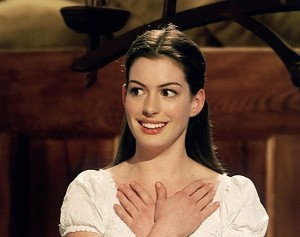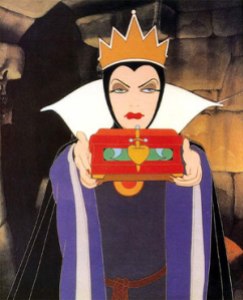by Rachel Coker
Rachel Coker is a homeschool student who lives in Virginia with her parents and two sisters. She has a passion for great books and has been surrounded by them all her life. When she is not writing or playing the piano, Rachel enjoys spending time with her family and friends. Interrupted is her first novel.
I think we’ve all been in this situation before. You’re starting out on a new book, and you have a fantastic cast of characters all lined up. You’re all bright-eyed and bushy-tailed, with all the optimism in the world. Everyone is going to just love your book about an orphaned princess who never knew who her mother was and is trying to escape the clutches of a jealous stepmother. There’s a wise old wizard helping her along her quest and an adorable, sweet mannered little sister by her side. Then, somewhere along page 127 of your masterpiece, you pass your story along to a friend and ask for her opinion. The news she returns couldn’t be more sobering:
She’s heard it all before.
Because you, my friend, have fallen into a dangerous pit. It’s called the “stereotype”, and I’ve been there before. It’s not a fun place to be. You started off with high hopes of a fresh, new story of an orphaned princess, but failed to realize that just about every author has been there and done that and there’s not much room for uniqueness anymore. The same goes with wise wizards, jealous evil queens, and sweet little sisters. They’re all overdone and if you’re not careful, they have the potential to turn your precious story into a boring, predictable mush.
But never fear, because I’m here to help you! As someone who’s debut novel was the story of a bitter orphan girl, I know a lot about the danger of stereotypes, but I also know how to bust them. I’m not going to tell you that you can never write about an orphan, or an evil queen, or a sweet little girl. Because you most definitely can. I’m just here to suggest some ways to take the same old dreary ideas and make them fresh and exciting. It’s all about adding the right kind of twist, and turning your story from boring and predictable to new and amusing!
So let’s talk about the first stereotype. I’m referring to the mopey, depressing orphan girl. Some of you may remember Allie, from my book Interrupted: Life Beyond Words. She’s a great example of fitting into the orphan genre, without being stuck in the orphan stereotype. Because Allie was far from mopey and boring. True, she was sad at times, and she still held on to a great deal of bitterness, but the girl had extreme spunk. She was sassy, and sarcastic, and had so many interesting mood swings. At times she could be happy and almost sweet, then the next minute she’s throwing shoes and hurling insults. 😉 The point is, she’s interesting to read about. You never really know what she’s going to do next. One minute she’s optimistic and then the next she’s cynical. She keeps the reader on an emotional rollercoaster that’s always entertaining.
Another great example of a unique orphan would have to be Ella from Ella Enchanted by Gail Carson Levine. (Let’s pause for a brief second to also talk about how much better the book is than the movie. Seriously.) True, Ella only lost one parent instead of two, but since her father is never around, her life is very similar to an orphan. And she’s about as un-interesting as could be! She’s feisty and witty and funny and makes life brighter for everyone around her. You never see her moping around or romanticising her lonely life. Instead she’s out learning how to talk to ogres and save herself from a fairy’s curse. That’s interesting, people.
Wise old people are also overly stereotyped all the time. Probably because there are so many wise older people in real life. Whatever the case, it’s getting annoying to read about it. Why are all these old chaps the same? Quiet, poetical, always speaking in condensed sentences brimming with wisdom and philosophy. It can add a lot to a book, but it can also make it boring. If you must have an older character in your book, why does he or she have to be quiet and wise? Why not short-tempered and sardonic or long-winded and vain? Why not an older man who shouts German curse words when he’s mad or an older woman who constantly starts every sentence with a sigh and, “Well, when I was a young belle in Georgia…” That would be much more entertaining to read. Or if you must have a wise character at all (I mean, if your story really demands it and you’re going to be that way), why does it have to be an old person anyway? Why not a smart-cracking little boy who’s wise beyond his years or a pushy aunt who always seems to know the right thing to do and doesn’t mind telling everyone else about it?
The last stereotype I’m going to address (mostly because I’m running out of room–I’m really on a roll and could do this forever), is the evil, jealous woman. Why do people always assume that evil-ness and jealousy go hand-in-hand? I wonder how many people in real life try to murder princesses because they’re jealous of their gorgeous hair? Think outside the box. I think that people usually commit murder for other, much more psychologically disturbing reasons. Be creative.
So there you have it, young writers! Three examples of over-used stereotypes and a few ideas of how you can bust them. I’ve probably offended just about everyone still reading by now, but that’s okay since I can criticize myself, too. I do tend to stereotype sometimes, and it’s something I’m always working on. In my opinion, one of the hardest parts of writing any book is staying unique and fresh, and I’m always looking for ways to improve that. So hopefully this helped some of you in any way. Don’t be afraid to think of your own ideas, or to attack other stereotypes that I didn’t even mention here.
As always, you can read more of my overly sarcastic, sometimes helpful advice at my blog, and go ahead and like me on Facebook! My seventeenth birthday’s tomorrow–it can be your early gift to me. 😉



